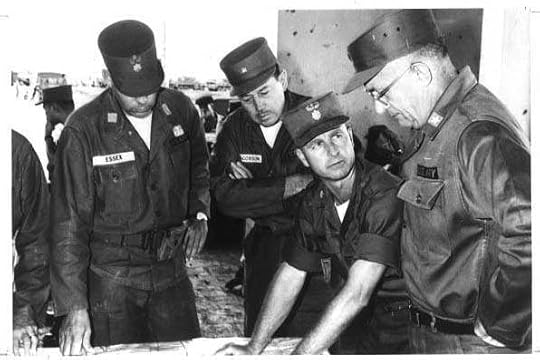What do you think?
Rate this book


896 pages, Paperback
First published September 1, 1988

The religion of the majority of the Delta peasants was a meld of Buddhism, ancestor worship and animism- devotion to the spirits that were thought to dwell in the streams, rocks and trees around their hamlets. Cao...explained [to Vann] that many of the Delta farmers had comfortable homes by their standards. His government would profoundly anger the peasants...if it systematically destroyed their houses and made them leave their fields and the graves of the ancestors they worshiped.The expectation that the average Vietnamese would side with and want to fight and die for General Edward Landsdale's creation in Saigon was just as foolish. Landsdale had helped to install a man named Ngo Dinh Diem, whose expectations of rule were dynastic. "His concession to modernity", Sheehan writes, "would be to call himself president." Diem's brother, Ngo Dinh Nhu, became Diem's counselor. Nhu was "an intellectual with a corrosive wit", and "responsible for the hodgepodge of ersatz Fascist and Communist techniques that the regime resorted to in its efforts at...control. Totalitarianism fascinated him." Steve Bann- err, I mean, Nhu- created an extralegal police force called the Republican Youth, also known as the Blue Shirts, to employ against enemies of the regime.
He was fond of convening mass meetings of his Republican Youth in Saigon...he would often arrive dramatically at the stadium or soccer field in a small French helicopter...Before Nhu gave his speech from a high podium, the assemblage of Blue Shirts would drop to one knee in obeisance, thrust a stiff arm into the air in the Fascist salute, and shout allegiance to the leader.The bloodshed of 1955-56 that Sheehan discovered the monument to had occurred as a result of Diem's Denunciation of Communists Campaign, launched with US encouragement and support. The exact number of dead is unknown, but is in the thousands; arrests were often conducted at night, with men and women taken from their homes and either gunned down in the street for their families and neighbors to find the next day, or sent to 'reeducation' camps. Most of the Viet Minh sympathizers in the south, Sheehan writes, "...were not Communists. They were the non-Communist majority who had followed the Communists out of nationalism." Diem did not understand, furthermore, "...that if he persecuted the Viet Minh he would be persecuting a great mass of non-Communist Vietnamese who looked back on what they had done with the emotions of patriotism."
"We have no fear that the present Chinese regime will attack us...", the youth said, "but if things changed in the future and a new government even dared to try..." He began to describe how the Vietnamese had smashed invading armies from China in centuries past.When the Viet Minh broke the will of the French at Dien Bien Phu, they solidified themselves as national heroes. Vann understood this at least by 1965 (and probably before), and understood that Saigon had to offer a better alternative, unless the endgame for the US was to rule in perpetuity as a colonial power over a hostile population. For Vann, this meant starting a revolution in Vietnamese culture; for this to happen, the US had to overcome what he viewed as its squeamishness about being seen as a colonial power and take the primary role in raising the standard of living in the country, instead of waiting around for the Vietnamese to do it. He wrote a letter to a friend in 1965 that seems to exemplify his thinking at the time. It was the closest he came, from what I can tell, to questioning the legitimacy of the war outright:
Ramsey started to explain further why Americans saw the Vietnamese as pawns of the Chinese. Ramsey was wrong, they said. Just because China had become...socialist...did not mean that it could dominate Vietnam. The Vietnamese would not tolerate any foreign domination...least of all Chinese. [Ramsey] was fascinated that these products of a Communist movement, which denounced modern vestiges of 'feudalism', could identify so passionately with the figures of their feudal past...It occurred to him that Americans need look no further than this Vietnamese Communist enemy for the best possible native barrier against Chinese expansion into southeast Asia.
If it were not for the fact that Vietnam is but a pawn in the larger east-west confrontation, and that our presence here is essential to deny the resources of this area to Communist China, then it would be damned hard to justify our support for the existing government. There is a revolution going on in this country- and the principles, goals and desires of the other side are much closer to what Americans believe in...I realize that ultimately, when the Chinese brand of Communism takes over, that these 'revolutionaries' are going to be sadly disappointed- but then it will be too late- for them; and too late for us to win them.